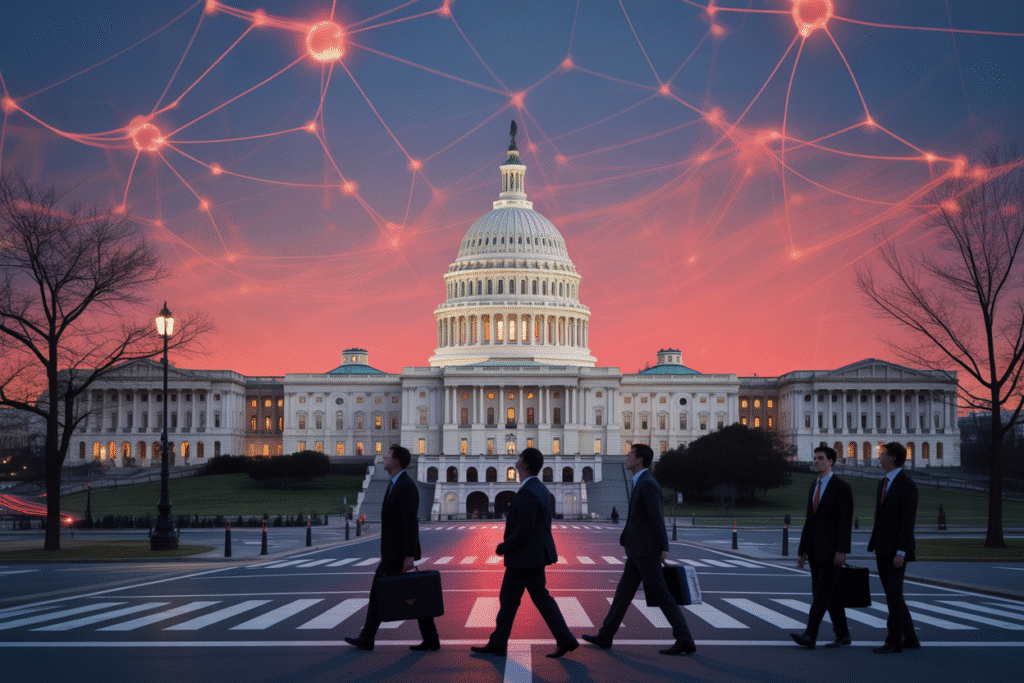AI ethics theater, jobocalypse fears, and deepfake democracy—here’s the real-time buzz you can’t ignore.
Scroll through any tech feed and you’ll spot the buzzwords: responsible AI, job displacement, deepfakes. But behind the headlines, real people are asking sharper questions. In just the last three hours, X lit up with four stories that cut through the hype. Here’s what’s trending, why it matters, and how it could reshape your next click, vote, or paycheck.
When “Responsible AI” Becomes a Corporate Flex
Ever feel like the AI ethics headlines are just a glossy brochure for something far messier? You’re not alone. Over the past three hours, X has been buzzing with posts that peel back the corporate curtain and ask the hard questions. From “responsible AI” theater to fears of digital feudalism, here are the four stories lighting up timelines—and why they matter to anyone who clicks, scrolls, or simply breathes online air.
The first grenade came from crypto commentator Nora. She argues that OpenAI, Google, and friends aren’t really fixing bias; they’re staging PR spectacles. Ethics officers? Panels? Fancy PDF guidelines? All smoke, she says, while the real poison sits in the training data—outdated, skewed, sometimes outright manipulated. Her post plugs a data-cleanup platform called JoinSapien, but the bigger takeaway is a dare: call the bluff on corporate virtue signaling.
Why does this sting? Because it reframes every splashy AI launch as a potential ethics mirage. If the data layer stays dirty, even the most well-intentioned model can spit out discriminatory results. Investors hate uncertainty, users hate hypocrisy, and regulators hate being played. The thread already has 22 likes and 26 replies, with defenders claiming real progress and skeptics demanding receipts. Either way, the spotlight is now on the data supply chain—and that’s a conversation that won’t fit in a press release.
The ripple effect is immediate. Commenters are swapping stories of biased hiring algorithms and lopsided facial-recognition datasets. Some propose open-source audits; others warn that exposing flaws could hand ammunition to anti-tech lobbyists. The tension is palpable: transparency versus trade secrets, innovation speed versus moral caution. Nora’s mic-drop moment forces everyone to pick a side, and the clock is ticking for companies to prove they’re more than a glossy brochure.
Key takeaways:
• Ethics theater risks eroding public trust faster than any bug fix.
• Data audits may become the next regulatory battleground.
• Startups offering clean datasets could see sudden investor love.
Next up: job displacement fears that sound less like speculation and more like a dystopian screenplay.
Jobocalypse Now: 40% Gone in Five Years?
Imagine waking up to headlines that 40 percent of jobs vanished overnight—not in decades, but in five short years. That’s the scenario user @hstrkkrm dropped into Grok’s lap, and the AI chatbot didn’t flinch. The post paints a brutal picture: AI wipes out entire sectors, new industries take a generation to mature, and five mega-corporations hoard the models like feudal lords guarding castles. Past tech shifts lifted workers up the skills ladder; this one, the argument goes, kicks the ladder away.
The thread quickly spirals into real-world consequences. Who pays the rent when truckers, coders, and call-center reps are automated away? Universal basic income gets floated, then shot down with reminders of Iran’s cash-program collapse. Retraining sounds nice, but who funds it when profits concentrate in a handful of cloud kingdoms? The emotional core is a raw plea: don’t let efficiency become another word for cruelty.
Engagement is smaller here—two replies, 45 views—but the intensity is high. One commenter shares a personal story: their cousin’s logistics firm already replaced half the dispatch team with routing algorithms. Another links to a McKinsey study predicting similar timelines. The anecdotal and the analytical collide, creating a narrative that feels both urgent and intimate. It’s no longer abstract; it’s your neighbor’s paycheck on the chopping block.
Counterarguments arrive fast. Techno-optimists claim new roles always emerge—AI trainers, ethicists, prompt engineers. Skeptics retort that quantity and quality rarely match what was lost. The subtext: who controls the transition timeline? If the same firms profiting from automation also write the safety nets, conflict of interest looms large. The debate leaves readers with a haunting question: are we building a bridge to the future or a moat around the privileged?
Quick hits:
• UBI trials in Kenya and Finland show mixed results—context matters.
• Retraining programs need funding tied to automation profits, not goodwill.
• Watch for policy proposals linking AI taxes to worker transition funds.
The fear is real, but so is the search for solutions.
Deepfakes, Copyright, and the Next Election Cycle
While job fears simmer, another front is exploding: generative AI’s double-edged dance with democracy. Global Command’s post warns that the same tools powering smarter voter guides can also flood feeds with deepfake speeches and synthetic scandals. The line between enhanced deliberation and manufactured chaos is razor-thin, and the guardrails are still being sketched on napkins.
The post itself is short, almost manifesto-like: ethics, clarity, human oversight. But the replies unpack layers of risk. One user asks what happens when a fake video of a candidate drops 24 hours before an election. Another points to existing examples—an AI-generated robocall mimicking a U.S. president’s voice earlier this year. The consensus: tech isn’t neutral; it’s a battleground for values, and right now the values are up for grabs.
Samu3l, a builder in the thread, shifts the lens to creator rights. His Dobby Writer tool can enhance text, but it lacks built-in limits on reuse or cloning. Imagine pouring months into a novel only to see an AI spin off infinite sequels without credit or compensation. The post frames the issue as a looming IP apocalypse: innovation outpacing ethics, with developers and artists caught in the crossfire. Replies range from open-source absolutists to hardline copyright defenders, each staking territory in a war that’s just beginning.
The stakes crystallize around three fault lines:
• Transparency: Who gets to see the training data and model weights?
• Control: Can creators opt out, throttle usage, or demand royalties?
• Accountability: When harm spreads, who pays—the platform, the user, or the model maker?
Regulators are watching. The EU’s AI Act inches closer to final votes; U.S. agencies float watermarking mandates. Meanwhile, venture capital flows to startups promising “ethical middleware” that embeds consent and compensation into every prompt. The race is on to see whether code or law writes the first enforceable rulebook.
The takeaway is sobering: generative AI can amplify the best and worst of human intent at scale. The next election cycle, the next bestseller, the next viral meme—all could be authored, distorted, or stolen by algorithms we barely understand. The only certainty is that silence isn’t an option.
Your move: demand transparency, support ethical platforms, and never assume the default setting has your best interests at heart.


